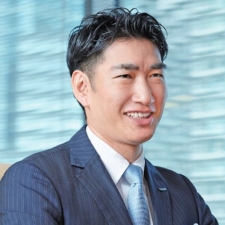As Sega’s new fiscal year gets underway, company CEO Haruki Satomi has publicly stated its plans and intentions for the remainder of 2024 and early 2025. The year is a significant one as it marks the final period of Sega’s medium-term plan laid out in 2021.
For this reason – not to mention the state of the games industry, plagued with layoffs – Satomi has expressed the importance of maintaining employee motivation, and further boosting it, in fact. His comments came from Sega’s latest financial report, which also revealed the company’s net sales increase of 21.4% year-on-year.
“Our slogan, Beyond the Status Quo, is quickly becoming a reality. The fiscal year ending March 2024, the final year of the plan, will be a pivotal year in which we will continue this favorable trend while further accelerating growth as we work to realise our long-term vision,” he said.
“To make this happen, it will be vital to further boost the motivation of our employees, who are the driving force behind all our actions. As group CEO, I have many roles and responsibilities, but the most important thing for me is to get our employees to fully understand and empathise with our mission and vision, and to help bring out their passion and energy.”
Ratings and reputation
“In today’s game market, users increasingly tend to read numerous reviews and media information before they buy a game. Talked-about titles with high ratings can record phenomenal sales worldwide, but we see a growing number of cases where sales are sluggish for games that fail to catch the attention of users,” Satomi acknowledged.
For this reason, Sega is prioritising finding maximum value in its IP, of which Sonic stands at the forefront.
“Success with Sonic IP has equipped the Group with a wealth of knowledge regarding IP development, which we plan to harness in actively pursuing measures to expand other excellent IPs on a global scale as well,” Satomi added.
“The key to making hit games that generate huge sales is to create games that offer new, never-before-seen experiences, increase engagement with users, and get widely talked about.”
Global presence is a key goal too, with Sega building a “track record” for European studio acquisitions; while Sega has a strong presence in Japan and the US, Satomi noted that its games aren’t performing as well in Europe, “shedding a light on some issues”.
Hence the acquisition of studios in Europe, in an attempt to address this.
Powering up
Of course, the biggest of those acquisitions is Angry Birds developer Rovio. Satomi stated that Sega and Rovio, acquired last August, are especially complementary: Sega possessing expertise in console and PC gaming while Rovio is an undisputed veteran of mobile. Not only that, the two together also reach a wide audience around the globe.
“Sega has the ability to develop and operate major titles for video game consoles and PCs, a lineup of globally recognised IPs like Sonic, and a track record and expertise in the mobile games market in Japan. Rovio, meanwhile, possesses the Angry Birds IP, which boasts a global fan base centered in Europe and North America,” Satomi said.
“It also has the ability to develop and operate global mobile games and has the game operation support tool Beacon, the platform supporting its games. Our two companies clearly have a mutually beneficial relationship.”

